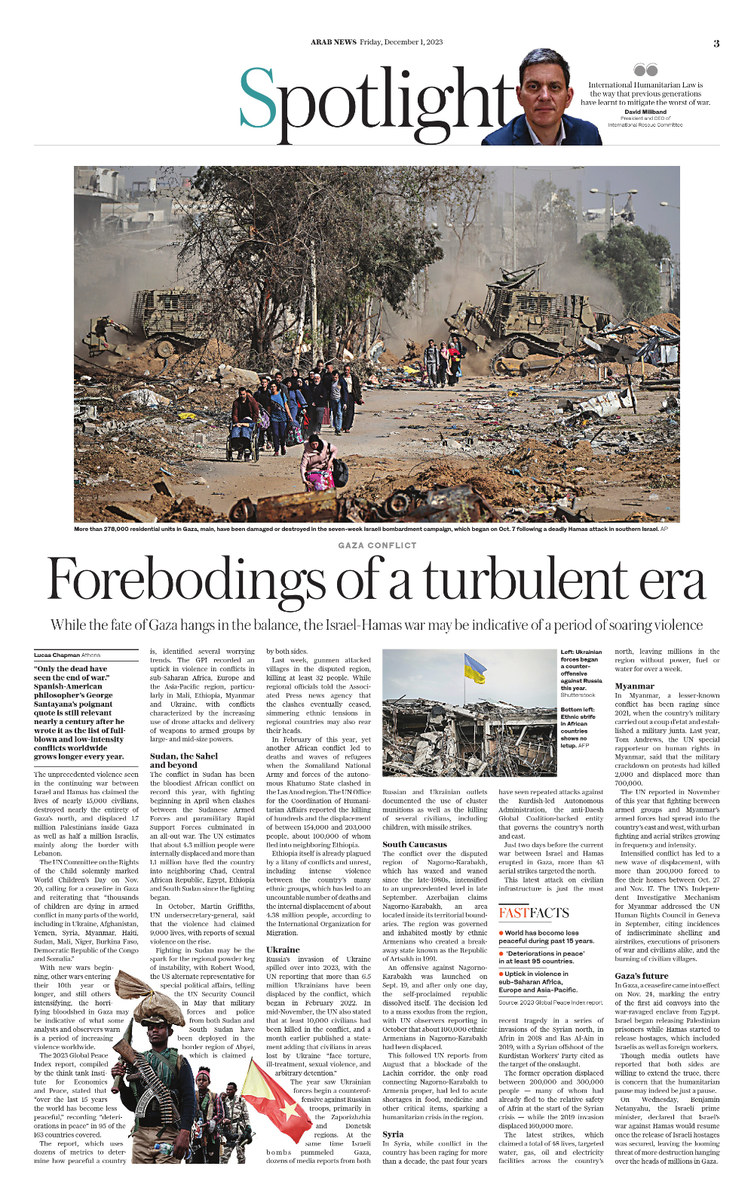ATHENS: “Only the dead have seen the end of war.” Spanish-American philosopher’s George Santayana’s poignant quote is still relevant nearly a century after he wrote it as the list of full-blown and low-intensity conflicts worldwide grows longer every year.
The unprecedented violence seen in the continuing war between Israel and Hamas has claimed the lives of more than 15,000 civilians, destroyed nearly the entirety of Gaza’s north, and displaced 1.7 million Palestinians inside Gaza as well as half a million Israelis, mainly along the border with Lebanon.
The UN Committee on the Rights of the Child solemnly marked World Children’s Day on Nov. 20, calling for a ceasefire in Gaza and reiterating that “thousands of children are dying in armed conflict in many parts of the world, including in Ukraine, Afghanistan, Yemen, Syria, Myanmar, Haiti, Sudan, Mali, Niger, Burkina Faso, Democratic Republic of the Congo and Somalia.”
With new wars starting, older ones entering their 10th year or longer, and still others intensifying, the bloodshed in Gaza may be indicative of what some analysts and observers view as a period of increasing violence worldwide.
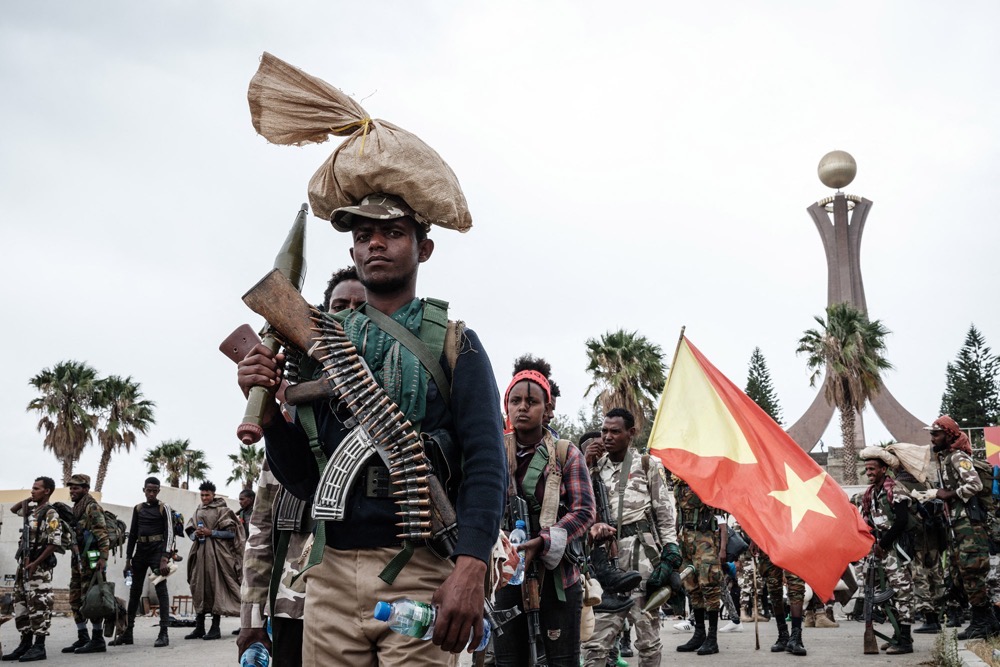
Soldiers of Tigray Defence Force (TDF) prepare to leave for another field at Tigray Martyr's Memorial Monument Center in Mekele. (AFP)
The 2023 Global Peace Index report, compiled by the think tank Institute for Economics and Peace, stated that “over the last 15 years the world has become less peaceful,” recording “deteriorations in peace” in 95 of the 163 countries covered.
The report, which uses dozens of metrics to determine how peaceful a country is, identified several worrying trends. The GPI recorded an uptick in violence in conflicts in sub-Saharan Africa, Europe and the Asia-Pacific region, particularly in Mali, Ethiopia, Myanmar and Ukraine, with conflicts characterized by the increasing use of drone attacks and delivery of weapons to armed groups by large- and mid-size powers.
Sudan, the Sahel and beyond
The conflict in Sudan has been the bloodiest African conflict on record this year, with fighting beginning in April when clashes between the Sudanese Armed Forces and paramilitary Rapid Support Forces culminated in an all-out war. The UN estimates that about 4.3 million people were internally displaced and more than 1.1 million have fled the country into neighboring Chad, Central African Republic, Egypt, Ethiopia and South Sudan since the fighting began.
In October, Martin Griffiths, UN undersecretary-general, said that the violence had claimed 9,000 lives, with reports of sexual violence on the rise.
Fighting in Sudan may be the spark for the regional powder keg of instability, with Robert Wood, the US alternate representative for special political affairs, telling the UN Security Council in May that military forces and police from both Sudan and South Sudan have been deployed in the border region of Abyei, which is claimed by both sides.
Last week, gunmen attacked villages in the disputed region, killing at least 32 people. While regional officials told the Associated Press news agency that the clashes eventually ceased, simmering ethnic tensions in regional countries may also rear their heads.
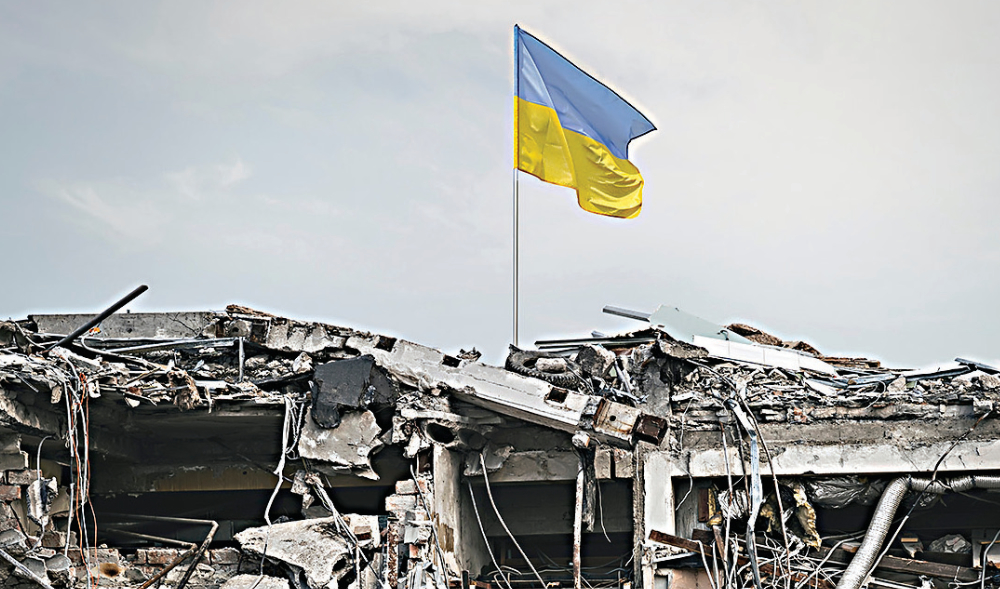
In mid-November, the UN also stated that at least 10,000 civilians had been killed in the Ukraine-Russia conflict. (Shutterstock)
In February of this year, yet another African conflict led to deaths and waves of refugees when the Somaliland National Army and forces of the autonomous Khatumo State clashed in the Las Anod region. The UN Office for the Coordination of Humanitarian Affairs reported the killing of hundreds and the displacement of between 154,000 and 203,000 people, about 100,000 of whom fled into neighboring Ethiopia.
Ethiopia itself is already plagued by a litany of conflicts and unrest, including intense violence between the country’s many ethnic groups, which has led to an uncountable number of deaths and the internal displacement of about 4.38 million people, according to the International Organization for Migration.
Ukraine
Russia’s invasion of Ukraine spilled over into 2023, with the UN reporting that more than 6.5 million Ukrainians have been displaced by the conflict, which began in February 2022. In mid-November, the UN also stated that at least 10,000 civilians had been killed in the conflict, and a month earlier published a statement adding that civilians in areas lost by Ukraine “face torture, ill-treatment, sexual violence, and arbitrary detention.”
The year saw Ukrainian forces begin a counteroffensive against Russian troops, primarily in the Zaporizhzhia and Donetsk regions. At the same time Israeli bombs pummeled Gaza, dozens of media reports from both Russian and Ukrainian outlets documented the use of cluster munitions as well as the killing of several civilians, including children, with missile strikes.
South Caucasus
The conflict over the disputed region of Nagorno-Karabakh, which has waxed and waned since the late-1980s, intensified to an unprecedented level in late September. Azerbaijan claims Nagorno-Karabakh, an area located inside its territorial boundaries. The region was governed and inhabited mostly by ethnic Armenians who created a breakaway state known as the Republic of Artsakh in 1991.
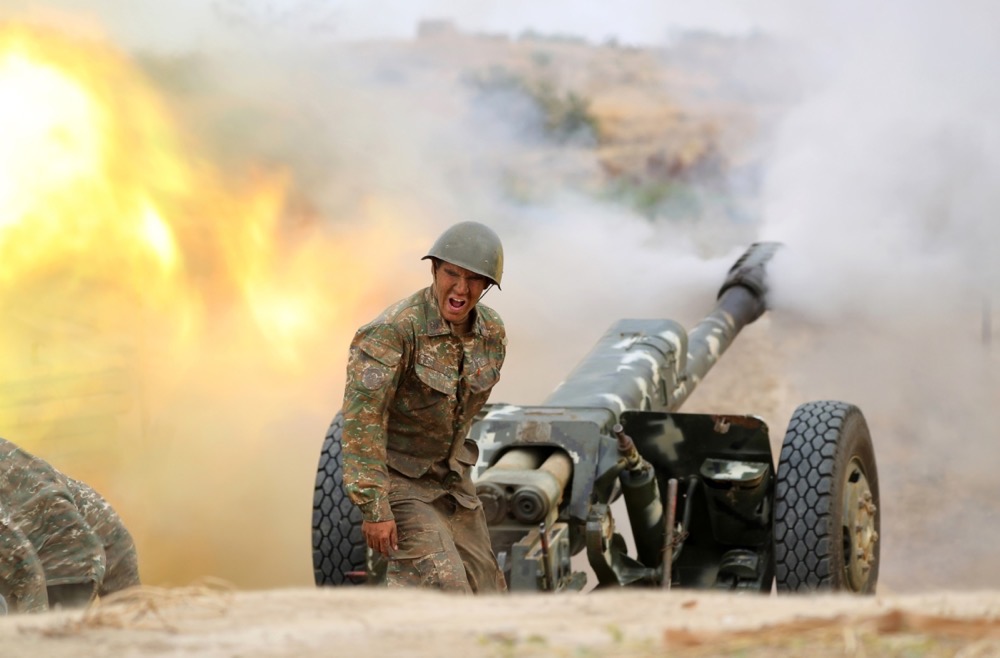
Armenian military soldier from Nagorno-Karabakh firing a conventional artillery piece towards Azeri positions. (AFP)
An offensive against Nagorno-Karabakh was launched on Sept. 19, and after only one day, the self-proclaimed republic dissolved itself. The decision led to a mass exodus from the region, with UN observers reporting in October that about 100,000 ethnic Armenians in Nagorno-Karabakh had been displaced.
This followed UN reports from August that a blockade of the Lachin corridor, the only road connecting Nagorno-Karabakh to Armenia proper, had led to acute shortages in food, medicine and other critical items, sparking a humanitarian crisis in the region.
FASTFACTS
• World has become less peaceful during past 15 years.
• “Deteriorations in peace” in at least 95 countries.
• Uptick in violence in sub-Saharan Africa, Europe and Asia-Pacific.
Source: 2023 Global Peace Index report
Syria
In Syria, while conflict in the country has been raging for more than a decade, the past four years have seen repeated attacks against the Kurdish-led Autonomous Administration, the anti-Daesh Global Coalition-backed entity that governs the country’s north and east.
Just two days before the current war between Israel and Hamas erupted in Gaza, more than 43 aerial strikes targeted the north, according to the local war monitor Rojava Information Center.
This latest attack on civilian infrastructure is just the most recent tragedy in a series of invasions of the Syrian north, in Afrin in 2018 and Ras Al-Ain in 2019, with a Syrian offshoot of the Kurdistan Workers’ Party cited as the target of the onslaught.
The former operation displaced between 200,000 and 300,000 people — many of whom had already fled to the relative safety of Afrin at the start of the Syrian crisis — while the 2019 invasion displaced 160,000 more.
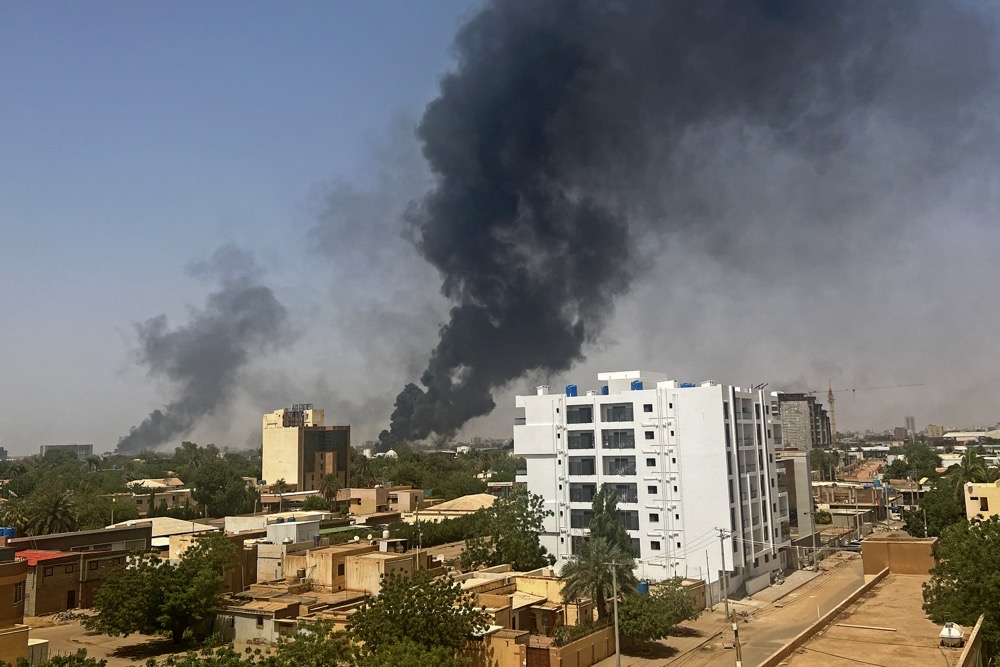
The UN estimates that about 4.3 million people were internally displaced in Sudan and more than 1.1 million have fled the country. (AFP)
The latest strikes, which claimed a total of 48 lives, targeted water, gas, oil and electricity facilities across the country’s north, leaving millions in the region without power, fuel or water for over a week, compounding crises caused by the region’s already-weakened infrastructure and a practical embargo from all sides.
The US has had some 900 troops stationed in the northeast alongside an unknown number of security contractors ever since the defeat of Daesh in 2019.
Myanmar
In Myanmar, a lesser-known conflict has been raging since 2021, when the country’s military carried out a coup d’etat and established a military junta. Last year, Tom Andrews, the UN special rapporteur on human rights in Myanmar, said that the military crackdown on protests had killed 2,000 and displaced more than 700,000.
The UN reported in November of this year that fighting between armed groups and Myanmar’s armed forces had spread into the country’s east and west, with urban fighting and aerial strikes growing in frequency and intensity.
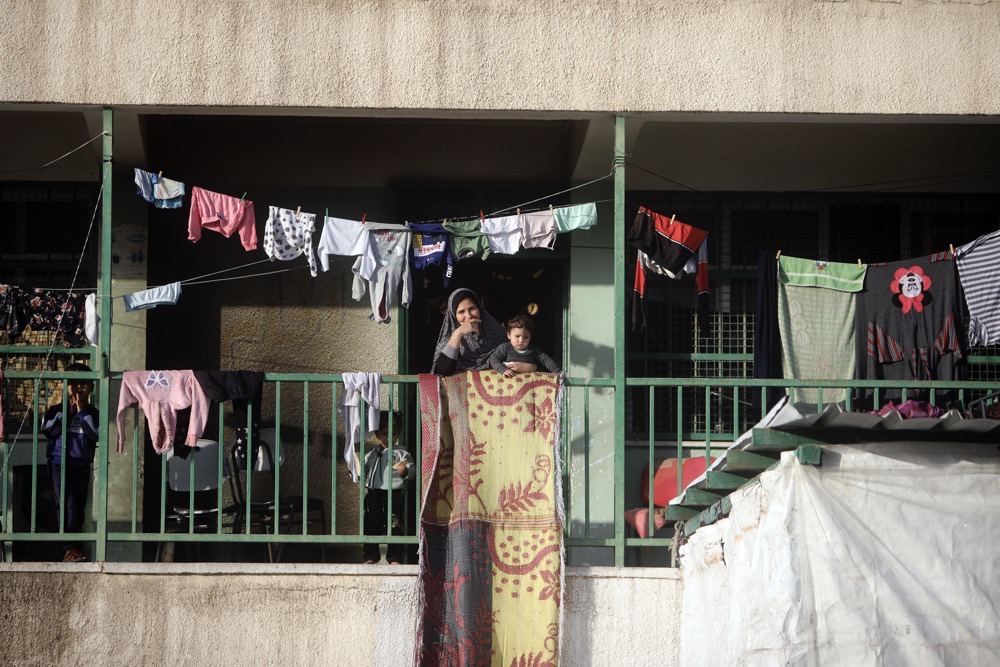
Though media outlets have reported that both sides are willing to extend the truce in Gaza. (AP)
Intensified conflict has led to a new wave of displacement, with more than 200,000 forced to flee their homes between Oct. 27 and Nov. 17. The UN’s Independent Investigative Mechanism for Myanmar addressed the UN Human Rights Council in Geneva in September, citing incidences of indiscriminate shelling and airstrikes, executions of prisoners of war and civilians alike, and the burning of civilian villages.
Gaza’s future
In Gaza, a ceasefire came into effect on Nov. 24, marking the entry of the first aid convoys into the war-ravaged enclave from Egypt. Israel began releasing Palestinian prisoners while Hamas started to release hostages, which included Israelis as well as foreign workers.
Though media outlets have reported that both sides are willing to extend the truce, there is concern that the humanitarian pause may indeed be just a pause.
On Wednesday, Benjamin Netanyahu, the Israeli prime minister, declared that Israel’s war against Hamas would resume once the release of Israeli hostages was secured, leaving the looming threat of more destruction hanging over the heads of millions in Gaza.
